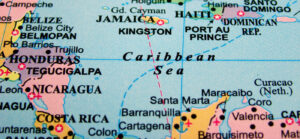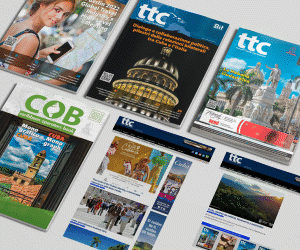Caribbean Tourism Leaders Push Back on Proposed US Port Fees

Highlighting tourism’s significant shared economic benefits to both the Caribbean and the United States—especially Florida—the Caribbean Hotel and Tourism Association (CHTA), the region’s foremost private-sector tourism organization, is urging alternative approaches to the proposed U.S. port service fees and tariffs.
The association is pushing for changes to the port-related policies under review by the U.S. government and is urging a fresh strategy to reinforce and protect the reciprocal trade and travel relationship between the Caribbean and the U.S.
In a formal submission to the U.S. Trade Representative (USTR), the CHTA argued against a new rule that would impose service fees of up to $1.5 million for each port call made by vessels built or flagged in China. The association emphasized that the ripple effect of this policy, combined with tariffs, would significantly raise the cost of goods imported to the region—costs that would ultimately be passed on to both cruise and land-based travelers.
While the U.S. government has stated that the policy is part of a broader effort to expand the use of U.S.-built shipping vessels, the CHTA cautioned against unintended economic fallout, particularly as many Caribbean tourism businesses are still grappling with post-pandemic challenges.
“The region was beginning to see light at the end of the tunnel with many tourism-related businesses recovering from the tremendous impact the pandemic had on travel and tourism,” said CHTA President Sanovnik Destang. “Even as our industry has rebounded, we remain highly vulnerable to the high cost of operations—particularly food and beverages—driven largely by five years of inflation. One-third of our tourism-related businesses reported a net loss in 2024, according to CHTA’s annual performance study,” he added.
In its filing to the USTR, CHTA joined forces with the CARICOM Private Sector Organization (CPSO) and regional shipping stakeholders, advocating for fee exemptions for the Caribbean and safeguards for smaller shipping operators that frequently rely on a network of modest transshipment ports.
Caribbean states within the proposed exemption would include Anguilla, Antigua and Barbuda, Aruba, The Bahamas, Barbados, Belize, Bermuda, Bonaire, the British Virgin Islands, Guyana, Cayman Islands, Curaçao, Dominica, Dominican Republic, Grenada, Guadeloupe, Haiti, Jamaica, Sint Maarten, St. Barthélemy, St. Kitts & Nevis, St. Lucia, St. Martin, St. Vincent and the Grenadines, Suriname, Trinidad & Tobago, and Turks and Caicos.
Tourism remains a powerful economic engine for the Caribbean. According to the World Travel and Tourism Council (WTTC), the sector generated $91.2 billion and supported over 2.9 million jobs across the region in 2024. The Caribbean Tourism Organization reports that roughly 68 million visitors arrived last year, equally split between cruise passengers and stayover guests.
According to the CPSO, each stayover visitor to the Caribbean generates an estimated $944 in indirect and direct U.S. imports, totaling roughly $6.2 billion in U.S. exports to CARICOM countries in 2023. Even cruise passengers contribute, adding about $23 each in indirect import value and roughly $0.3 billion in total U.S. exports.
“Given the clear mutual advantages to both the U.S. and the Caribbean of a vibrant Caribbean hospitality and tourism industry, and in the spirit of mutual collaboration, longstanding benefits from trade and tourism, and our shared commitment to free enterprise and democracy, we are hopeful that our recommendations are considered and adopted for our mutual benefit,” said Destang.
Source: Travel Pulse

MORE NEWS









